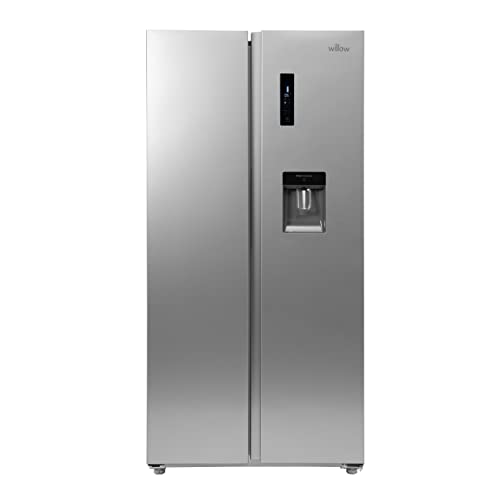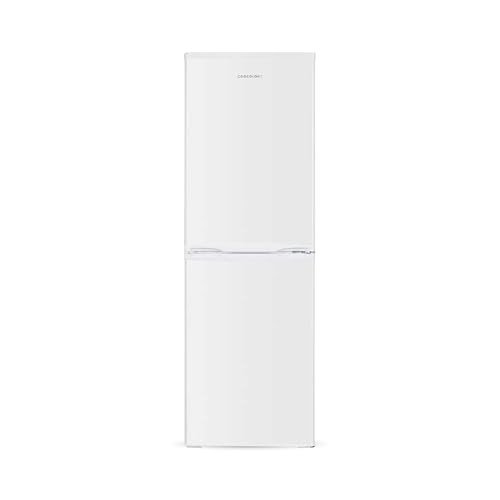ClancyHildred
ClancyHildred发表的博客
The Comprehensive Guide to Refrigerators in the UK
fridges & freezers are a necessary device in every household, serving an important function in food preservation and security. The UK market uses a varied variety of fridge types, sizes, functions, and brands. This article intends to supply an in-depth understanding of refrigerators readily available in the UK, including their features, energy performance, and elements to consider when making a purchase.

Kinds Of Refrigerators Available in the UK
When looking for a refrigerator, it is very important to understand the different types readily available. Each type comes with its own set of features and functions, dealing with various requirements and preferences. The most common types of fridges found in the UK include:
1. Leading Freezer Refrigerators
- Description: The traditional design, including the freezer compartment on top.
- Pros: More affordable, large, simple access to fresh food.
- Cons: Limited freezer space, the top might be less hassle-free for bulk items.
2. Bottom Freezer Refrigerators
- Description: Freezer lies at the bottom, enabling easier access to fresh food.
- Pros: Greater benefit, much better visibility of fresh items.
- Cons: Usually more pricey, some might have a hard time with big frozen items.
3. Side-by-Side Refrigerators
- Description: Features 2 vertical compartments, one for the fridge and one for the freezer.
- Pros: Ample storage area, simple to gain access to both frozen and fresh foods.
- Cons: Wider footprint, they might not fit in smaller sized cooking areas.
4. French Door Refrigerators
- Description: Combines functions of bottom freezers and side-by-sides, with 2 doors for the fridge on top.
- Pros: Stylish design, large, and typically includes advanced features.
- Cons: Higher rate point, aligns inadequately with smaller kitchen designs.
5. Compact Refrigerators
- Description: Smaller models developed for limited areas.
- Pros: Ideal for little houses or offices, energy-efficient.
- Cons: Limited storage capacity, might lack functions.
6. Integrated Refrigerators
- Description: Designed to mix effortlessly with kitchen cabinetry.
- Pros: Custom fit, visual appeal, increases home worth.
- Cons: Higher expense, might provide less flexibility in positioning.
7. Smart Refrigerators
- Description: Equipped with Wi-Fi and smart innovation functions.
- Pros: Advanced includes like touch screens and internal cams.
- Cons: Expensive, more complicated to fix.
| Refrigerator Type | Availability | Typical Price Range | Energy Efficiency |
|---|---|---|---|
| Top Freezer | Moderate | ₤ 300 - ₤ 600 | Average |
| Bottom Freezer | High | ₤ 400 - ₤ 800 | Above Average |
| Side-by-Side | Easy | ₤ 800 - ₤ 1500 | Differs |
| French Door | High | ₤ 800 - ₤ 2000 | High |
| Compact | Restricted | ₤ 200 - ₤ 500 | Average |
| Integrated | Customized | ₤ 1000 - ₤ 2500 | High |
| Smart | Variable | ₤ 1200+ | High |
Key Features to Consider
- Energy Efficiency: Look for models that are energy-efficient. In the UK, home appliances are rated from A (most effective) to G (least effective). An A+ score and above can cause substantial energy cost savings.
- Capability: Choose a fridge with enough capacity for your household. A basic guideline is 100-200 liters per person.
- Noise Level: Consider designs that run quietly, particularly if the cooking area is near living spaces.
- Cooling Technology: Features like frost-free technology are worth the financial investment, as they lessen maintenance.
- Adjustable Shelves: Having adjustable shelves enhances the flexibility to save larger items.
- Temperature level Control: Check for easy-to-use temperature level controls and zones for different types of food.
- Style: Choose the style and color that matches your cooking area aesthetic, whether you prefer a modern stainless steel appearance or a timeless retro finish.
Purchasing Tips
- Identify Your Needs: Consider your cooking habits, family size, and kitchen space.
- Set a Budget: Refrigerators can be found in different cost varieties. Develop a budget before you begin shopping.
- Research Study Energy Ratings: Invest in energy-efficient models to save money on utility costs.
- Check out Reviews: User experiences can supply insights into reliability and efficiency.
- Compare Brands: Some brands are known for their toughness while others might offer more ingenious features.
Frequently Asked Questions (FAQs)
1. For how long do refrigerators generally last?
- Fridges generally last between 10 to 20 years, depending on the brand name and how well they are kept.
2. Exist any upkeep tips for extending the life of a refrigerator?
- Routinely tidy the coils, inspect the door seals, and periodically thaw if necessary to maintain optimal efficiency.
3. What is the very best size refrigerator for a household of 4?
- For a household of 4, a refrigerator with a capacity of around 400-600 liters is generally sufficient.
4. Do I need to fret about energy usage when buying a refrigerator?

- Yes, energy intake is essential. Look for units with high energy efficiency rankings to decrease regular monthly costs.
5. Should I pick a fridge with a water and ice dispenser?
- This function can be convenient, especially for families. However, it may need more maintenance than basic designs.
Getting a refrigerator is a considerable choice for any household in the UK. With various types readily available, each with its special features and advantages, it is vital to evaluate individual needs before choosing. By thinking about aspects such as energy efficiency, capacity, and style aesthetic appeals, customers can choose a fridge that lines up well with their way of life, eventually boosting their kitchen area experience while securing food quality and freshness.
